Dacia Spring vs Mazda MX-30 - Differences and prices compared
Compare performance (100 HP vs 170 HP), boot space and price (14500 £ vs 30800 £ ) at a glance. Find out which car is the better choice for you – Dacia Spring or Mazda MX-30?
Costs and Efficiency:
Looking at overall running costs, both models reveal some interesting differences in everyday economy.
Dacia Spring has a convincingly advantage in terms of price – it starts at 14500 £ , while the Mazda MX-30 costs 30800 £ . That’s a price difference of around 16363 £.
In terms of energy consumption, the advantage goes to the Dacia Spring: with 12.40 kWh per 100 km, it’s clearly more efficient than the Mazda MX-30 with 18.30 kWh. That’s a difference of about 5.90 kWh.
As for electric range, the Dacia Spring performs significantly better – achieving up to 225 km, about 140 km more than the Mazda MX-30.
Engine and Performance:
Power, torque and acceleration say a lot about how a car feels on the road. This is where you see which model delivers more driving dynamics.
When it comes to engine power, the Mazda MX-30 has a convincingly edge – offering 170 HP compared to 100 HP. That’s roughly 70 HP more horsepower.
In acceleration from 0 to 100 km/h, the Mazda MX-30 is hardly perceptible quicker – completing the sprint in 9.10 s, while the Dacia Spring takes 9.60 s. That’s about 0.50 s faster.
Space and Everyday Use:
Cabin size, boot volume and payload all play a role in everyday practicality. Here, comfort and flexibility make the difference.
Seats: Mazda MX-30 offers to a small extent more seating capacity – 5 vs 4.
In curb weight, Dacia Spring is convincingly lighter – 1070 kg compared to 1849 kg. The difference is around 779 kg.
In terms of boot space, the Mazda MX-30 offers somewhat more room – 350 L compared to 308 L. That’s a difference of about 42 L.
When it comes to payload, Mazda MX-30 distinct takes the win – 402 kg compared to 274 kg. That’s a difference of about 128 kg.
Who wins the race in the data check?
The Dacia Spring is far ahead overall in the objective data comparison.
This result only shows which model scores more points on paper – not which of the two cars feels right for you.
Costs and Consumption
View detailed analysis
Engine and Performance
View detailed analysis
Dimensions and Body
View detailed analysis
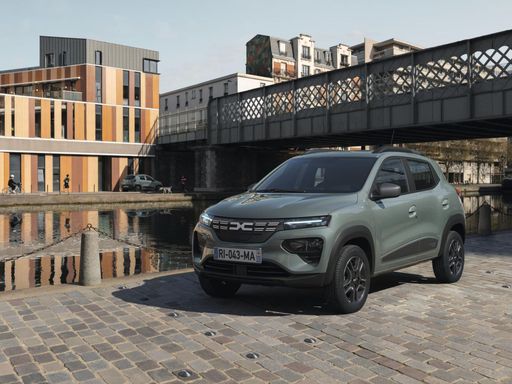
Dacia Spring
Dacia Spring
The Dacia Spring is an unpretentious city electric that strips EV ownership down to the essentials, offering clean, fuss-free transport for daily urban life. It won't impress luxury-seekers, but its cheerful practicality and rock-bottom running costs make it a clever, no-nonsense choice for anyone who wants electric mobility without the drama.
details
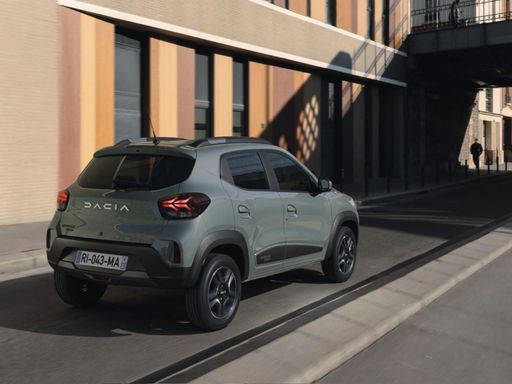
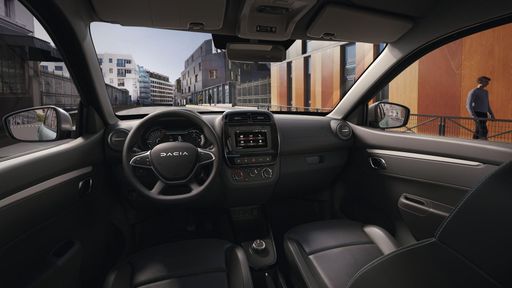
Mazda MX-30
The Mazda MX-30 trades conventional EV practicality for a boutique vibe, wrapping easy urban agility and a stylish, artisan interior into a compact package that stands out in the crossover crowd. It’s ideal for city-minded buyers who value design and driving feel over long-distance trips, and its quirky details prove Mazda can be playful without losing its driver-focused soul.
details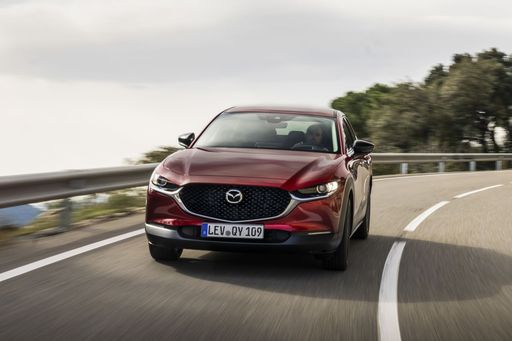
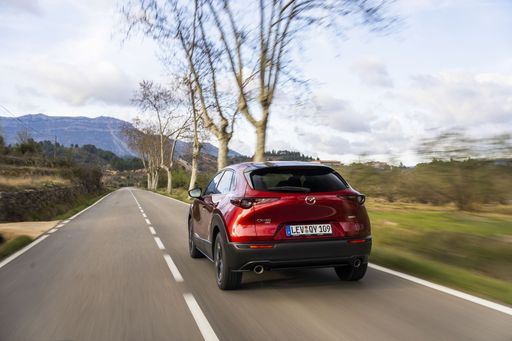
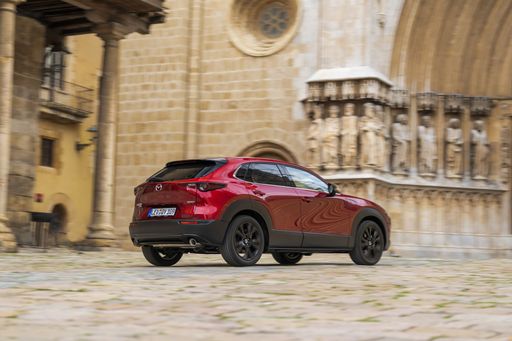
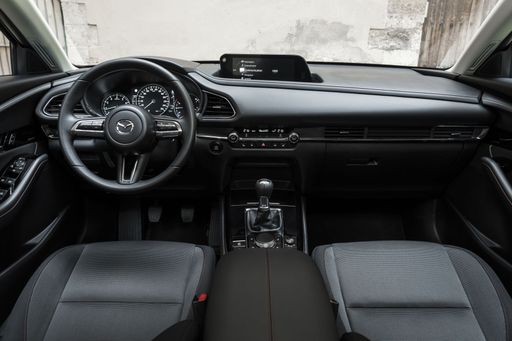
Costs and Consumption |
|
|---|---|
|
Price
14500 - 16900 £
|
Price
30800 - 37100 £
|
|
Consumption L/100km
-
|
Consumption L/100km
-
|
|
Consumption kWh/100km
12.4 - 12.7 kWh
|
Consumption kWh/100km
18.30 kWh
|
|
Electric Range
221 - 225 km
|
Electric Range
85 km
|
|
Battery Capacity
-
|
Battery Capacity
-
|
|
co2
0 g/km
|
co2
22 g/km
|
|
Fuel tank capacity
-
|
Fuel tank capacity
-
|
Dimensions and Body |
|
|---|---|
|
Body Type
SUV
|
Body Type
SUV
|
|
Seats
4
|
Seats
5
|
|
Doors
-
|
Doors
5
|
|
Curb weight
1070 kg
|
Curb weight
1849 kg
|
|
Trunk capacity
308 L
|
Trunk capacity
332 - 350 L
|
|
Length
-
|
Length
4395 mm
|
|
Width
1583 mm
|
Width
1848 mm
|
|
Height
-
|
Height
1555 mm
|
|
Max trunk capacity
-
|
Max trunk capacity
1137 - 1155 L
|
|
Payload
274 kg
|
Payload
402 kg
|
Engine and Performance |
|
|---|---|
|
Engine Type
Electric
|
Engine Type
Plugin Hybrid
|
|
Transmission
Automatic
|
Transmission
Automatic
|
|
Transmission Detail
Reduction Gearbox
|
Transmission Detail
Reduction Gearbox
|
|
Drive Type
Front-Wheel Drive
|
Drive Type
Front-Wheel Drive
|
|
Power HP
70 - 100 HP
|
Power HP
170 HP
|
|
Acceleration 0-100km/h
9.6 - 12.3 s
|
Acceleration 0-100km/h
9.10 s
|
|
Max Speed
-
|
Max Speed
140 km/h
|
|
Torque
137 Nm
|
Torque
-
|
|
Number of Cylinders
-
|
Number of Cylinders
-
|
|
Power kW
52 - 75 kW
|
Power kW
125 kW
|
|
Engine capacity
-
|
Engine capacity
830 cm3
|
General |
|
|---|---|
|
Model Year
2025
|
Model Year
2025
|
|
CO2 Efficiency Class
A
|
CO2 Efficiency Class
B
|
|
Brand
Dacia
|
Brand
Mazda
|
What drive types are available for the Dacia Spring?
The Dacia Spring is available as Front-Wheel Drive.
